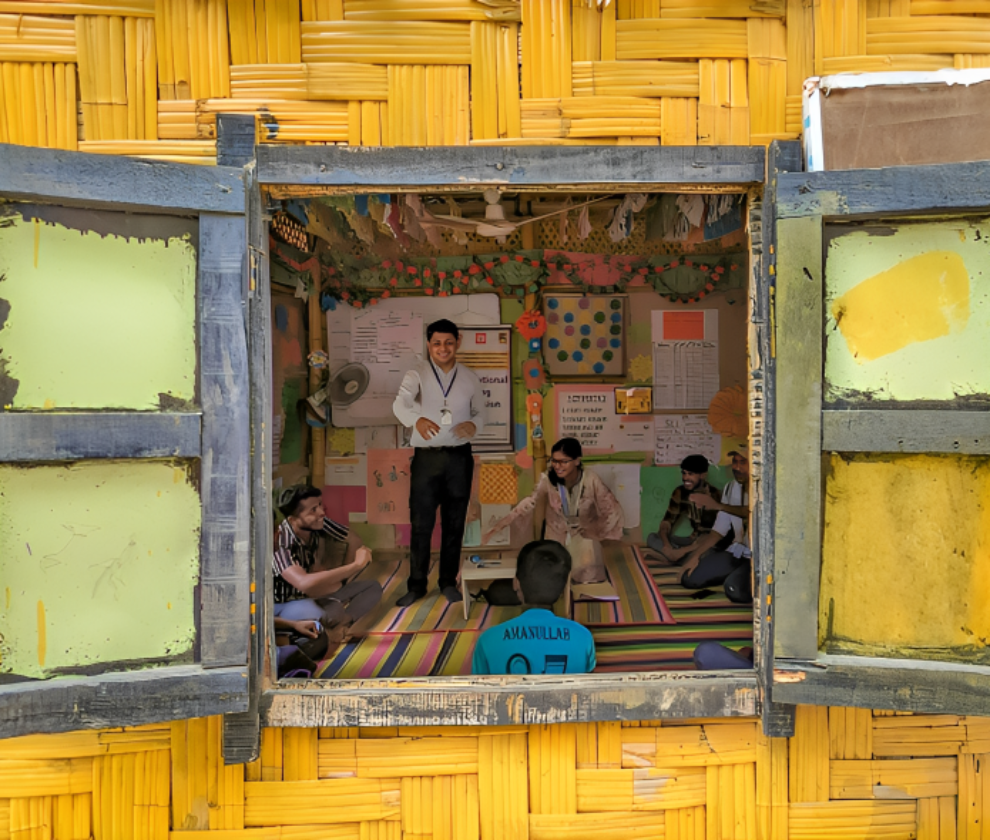The global market for plant factories is poised to undergo a seismic shift. With forecasts predicting a remarkable doubling in size from $121.9 billion in 2022 to a commanding $242.2 billion by 2032, it’s evident that change is afoot. The burgeoning demand for young trees and saplings now takes center stage, ushering in a new era of opportunities and challenges.
At the recent Middle East Green Initiative Summit during Cop27, Saudi Arabia cast a compelling spotlight on the future by unveiling an audacious plan – to plant a staggering 50 billion trees throughout the Middle East. Notably, 10 billion of these trees are earmarked for the very heart of Saudi Arabia. This bold initiative isn’t just about reforestation; it’s an endeavor to reduce global carbon emissions by an impressive 2.5%. In 2022, the initiative sprouted to life with approximately 60,000 trees planted in the bustling capital of Saudi Arabia, Riyadh, and swiftly grew to encompass a grand total of 8.4 million trees across the nation.
In the current landscape, the leading exporters of top-quality saplings include nations like Syria, Egypt, the Netherlands, India, Pakistan, China, Malaysia, Indonesia, and Turkey. A noticeable trend has emerged as these exporters acknowledge a substantial demand for Bangladeshi fruit tree saplings in the Middle East. The allure of Bangladeshi saplings, featuring an array of fruits and ornamentals – mango, jam, lemon, sapodilla, fig, neem, litchi, and flowering trees, has made waves in these discerning markets, beckoning opportunities for growth. As Bangladesh rises to meet the challenges and seize the prospects of this burgeoning sector, this article explores the potential & challenges and the strategic avenues that can catapult it to the forefront of the global sapling market.
Bangladesh’s Growing Role in Sapling Exports
Bangladesh has all the right conditions to become a major sapling exporter, thanks to its fertile land and favorable climate. However, the country hasn’t fully realized its potential in this trade due to a lack of government support and promotion.A few years ago, Bangladesh made its first direct exports of fruit tree seedlings via the Chattogram sea port. This was preceded by a small batch sent to Qatar through air cargo, raising hopes for a new export product.
In January 2019, Shamsul Alam successfully exported 5,000 fruit tree saplings to Qatar, including mango, java plum, lemon, fig, neem, and litchi saplings, after nearly three years of effort. In 2021, he expanded his exports through the Chattogram Port and now also ships to Dubai, having exported more than one lakh saplings.
According to exporters and the Plant Quarantine Wing of the Department of Agriculture Extension, four more companies have entered the export business in the last four years. For example, Sat Bhai Nursery in Gaibandha sent about 6,000 saplings to Turkey in two shipments in 2021 and 2022, including mango, jackfruit, litchi, and flower tree saplings. They plan to export another 3,000 saplings in the coming month.
Additionally, Khadim Enterprises of Comilla exported 5,330 fruit tree saplings to Dubai in 2022 and sent 100 as samples to the Maldives.
Why Gulf Countries Import Saplings from Bangladesh?
Climate Compatibility: Bangladesh’s climate is conducive to growing a wide variety of plant species, including those suitable for arid and semi-arid regions commonly found in Arab countries. These saplings can adapt better to similar environmental conditions.
Cost-Effective Production: Bangladesh offers a cost-effective production environment for saplings due to lower labor and operational costs, making its products more competitive in the international market. It costs them about $2 to prepare a tree sapling in nurseries in Bangladesh, they sell them in the Gulf market at a price about four times higher.
Quality Assurance: Bangladesh’s sapling producers may adhere to international quality standards, ensuring that the saplings meet the desired quality and phytosanitary requirements for import. Bangladeshi exporters have already scored phytosanitary certificates and environmental clearances.
Varietal Diversity: Bangladesh may offer a broad range of plant species and varieties, allowing Arab countries to access a diverse selection of saplings for their specific agricultural, landscaping, or horticultural needs.
Trade Agreements: Bilateral or regional trade agreements between Bangladesh and Arab countries can facilitate the import of saplings, reducing trade barriers and import restrictions.
Export Demand: Arab countries may have a growing demand for saplings due to their expanding agriculture, forestry, and landscaping sectors, and Bangladesh can serve as a reliable source for these products.
What are the Effective Strategies for Maximizing Sapling Export Opportunities?
- The process of obtaining No Objection Certificates (NOCs) for sapling exports should be streamlined to reduce delays.
- Efforts should be made to create a favorable environment for sapling exports by offering incentives such as tax benefits or subsidies to sapling producers and exporters. Additionally, a dedicated promotional campaign should be developed to raise awareness about the quality and benefits of locally produced saplings for international markets.
- The inclusion of saplings in international trade fairs hosted by the Export Promotion Bureau should be advocated for in order to boost visibility and attract buyers.
- Investment in reefer container facilities at loading points is recommended to maintain sapling quality and reduce transportation delays.
- Efforts should be made to negotiate with airlines and authorities to lower air freight charges for sapling exports, thereby enhancing cost competitiveness and market accessibility.
- Public-private research partnerships should be fostered to identify sapling varieties suitable for Middle Eastern climates, given the limited research capacity in the private sector.




